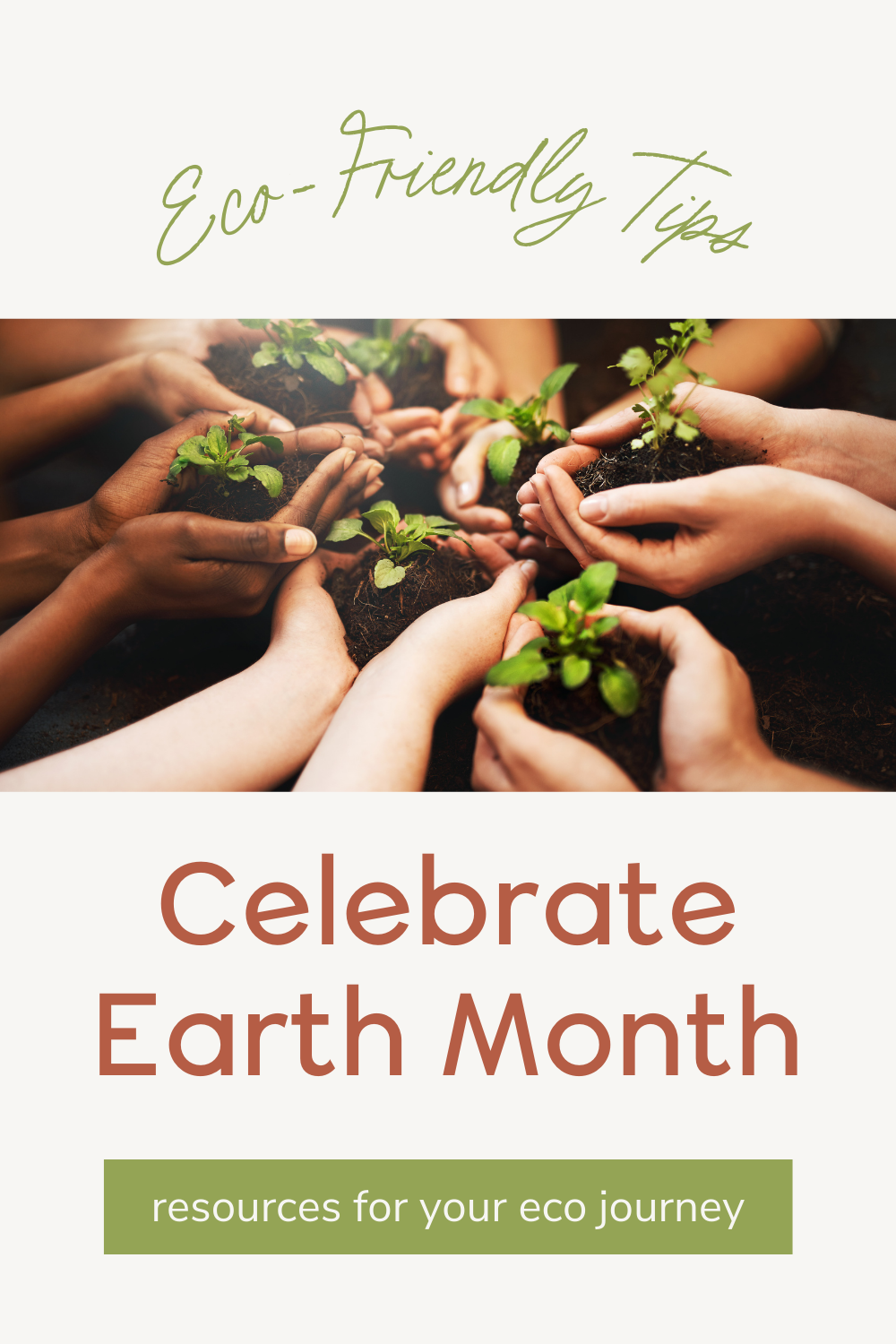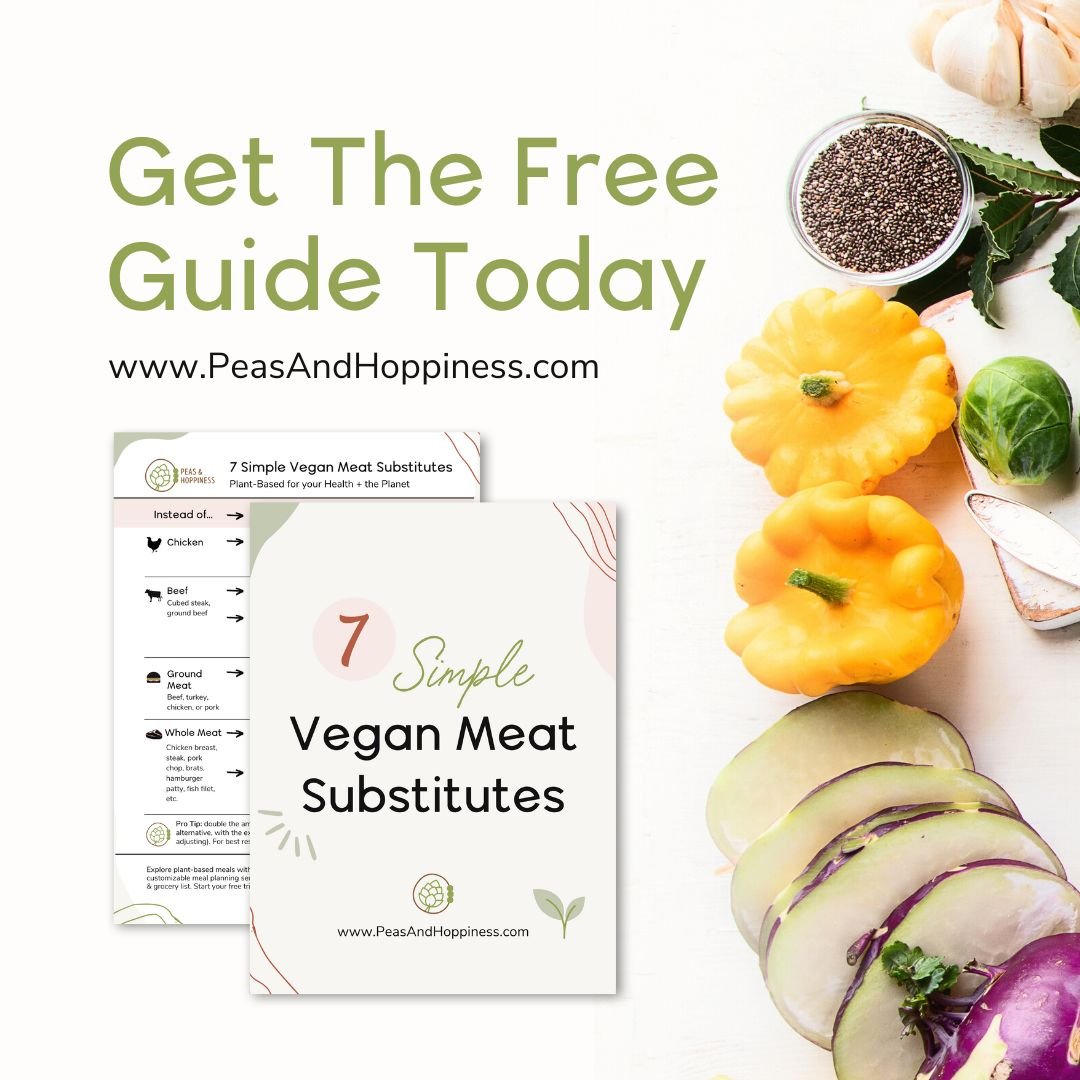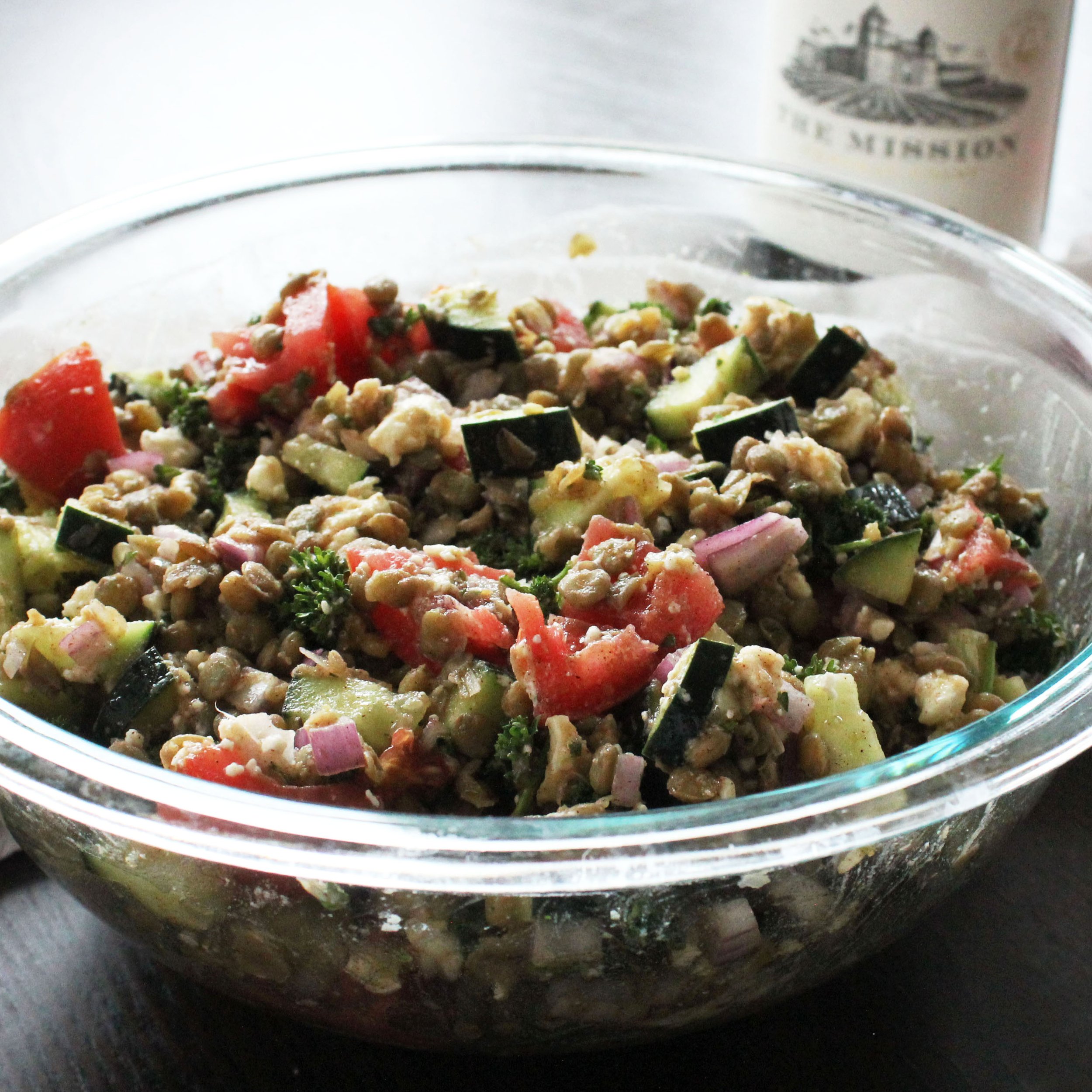How do you plan to celebrate Earth Day or Earth Month? From meal planning to plant-based eating to choosing seasonal vegetables, there are many ways to make a difference this Earth Month!
Happy Earth Month! With spring finally starting to emerge, it seems like a perfect time to reflect on the beauty around us and recommit to protecting our planet.
Sometimes climate news feels heavy – there is so much work to be done and so little time. When I start to feel this way, I like to focus on one small change: because just like everything else in life, that’s how big movements start.
Earth Day is celebrated on April 22nd and began in 1970 as a way to bring awareness to environmental issues and in 1990 became a globally celebrated holiday.
To celebrate, I’m sharing some of my favorite ways to live more sustainably.
Prevent Food Waste by Meal Planning
Did you know an estimated 30-40% of the food supply in the US is lost to food waste? Of that, a substantial portion of waste happens right in our own kitchens when we discard spoiled food.
The best way to prevent food waste is to create a meal plan for your family. By making a meal plan, you can buy only the groceries you need, manage your inventory of leftovers so nothing goes to waste, and plan to use the most perishable vegetables first so they don’t spoil in the fridge.
To get started with meal planning, download this free Meal Planning Template.
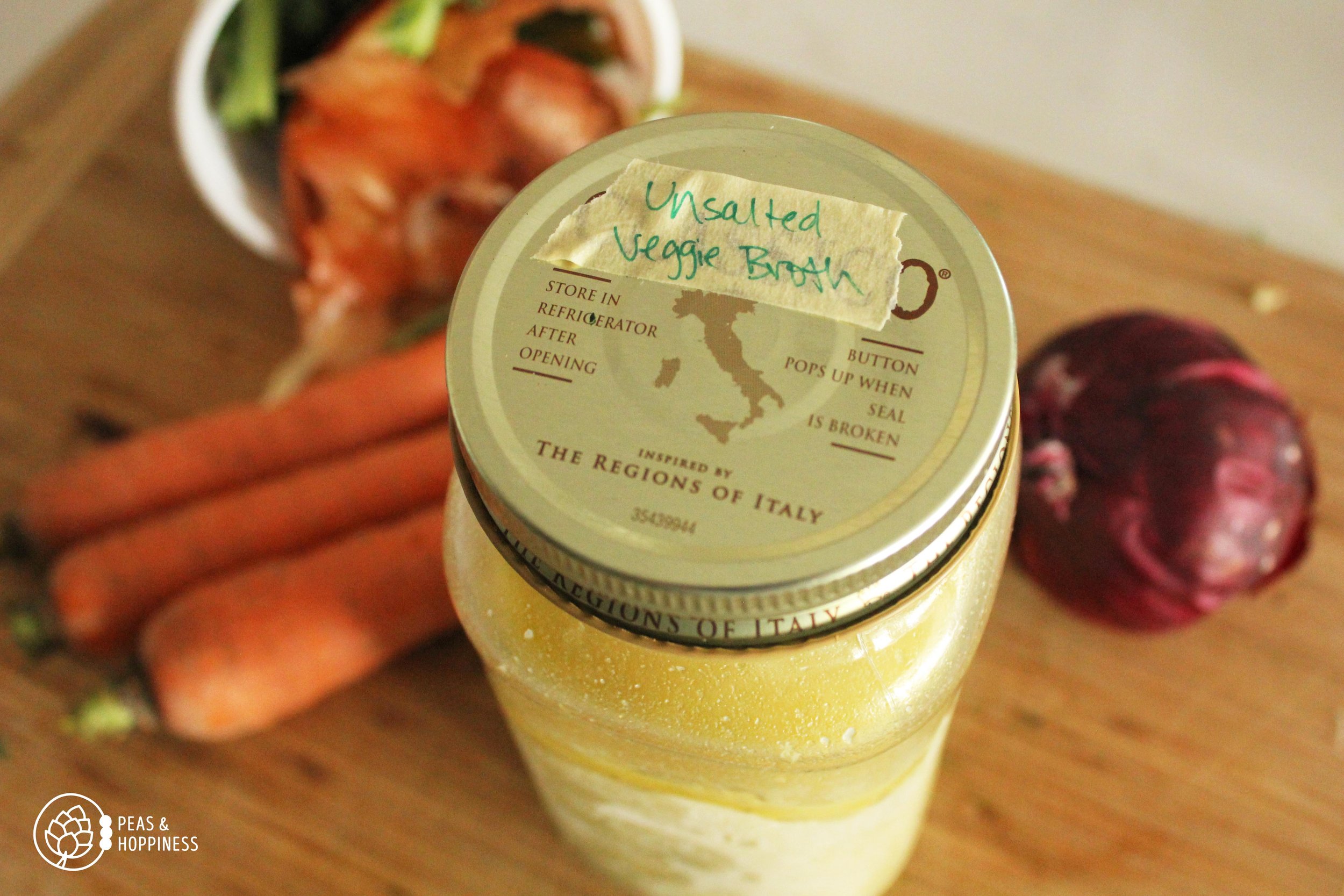
Don’t toss your veggie scraps! Use them to make this delicious Homemade Vegetable Broth instead
Eat Plant-Based Options instead of Animal Proteins a Few Times a Week
A quarter of global greenhouse gas emissions comes from food production. Of that, half is related to producing animal products.
The environmental benefits of eating lower on the food chain are mostly due to input costs: the amount of land used and the inputs that go into growing the food for animals (such as fertilizers).
Even if you’re not ready to switch to a completely vegetarian or vegan diet, transitioning to a “Flexitarian” diet which still contains meat – just less than the typical Western diet – is a great way to reduce your carbon footprint.
Here are 7 Simple Vegan Meat Substitutes to start with!
Switch to Plastic-Free Products in your House
Look around your house and you’ll find plastic everywhere: in packaging, containers, fibers in our clothing, and so many more places!
Plastic is detrimental to the environment on two levels: it’s traditionally produced from fossil fuels (crude oil) and it takes a very long time to decompose – some types up to 500 years or more!
Unfortunately, recycling plastic is not as easy as it sounds. It’s fairly expensive and energy intensive, which means that much of the plastic tossed into the recycle bin never actually gets recycled and ends up in a landfill.
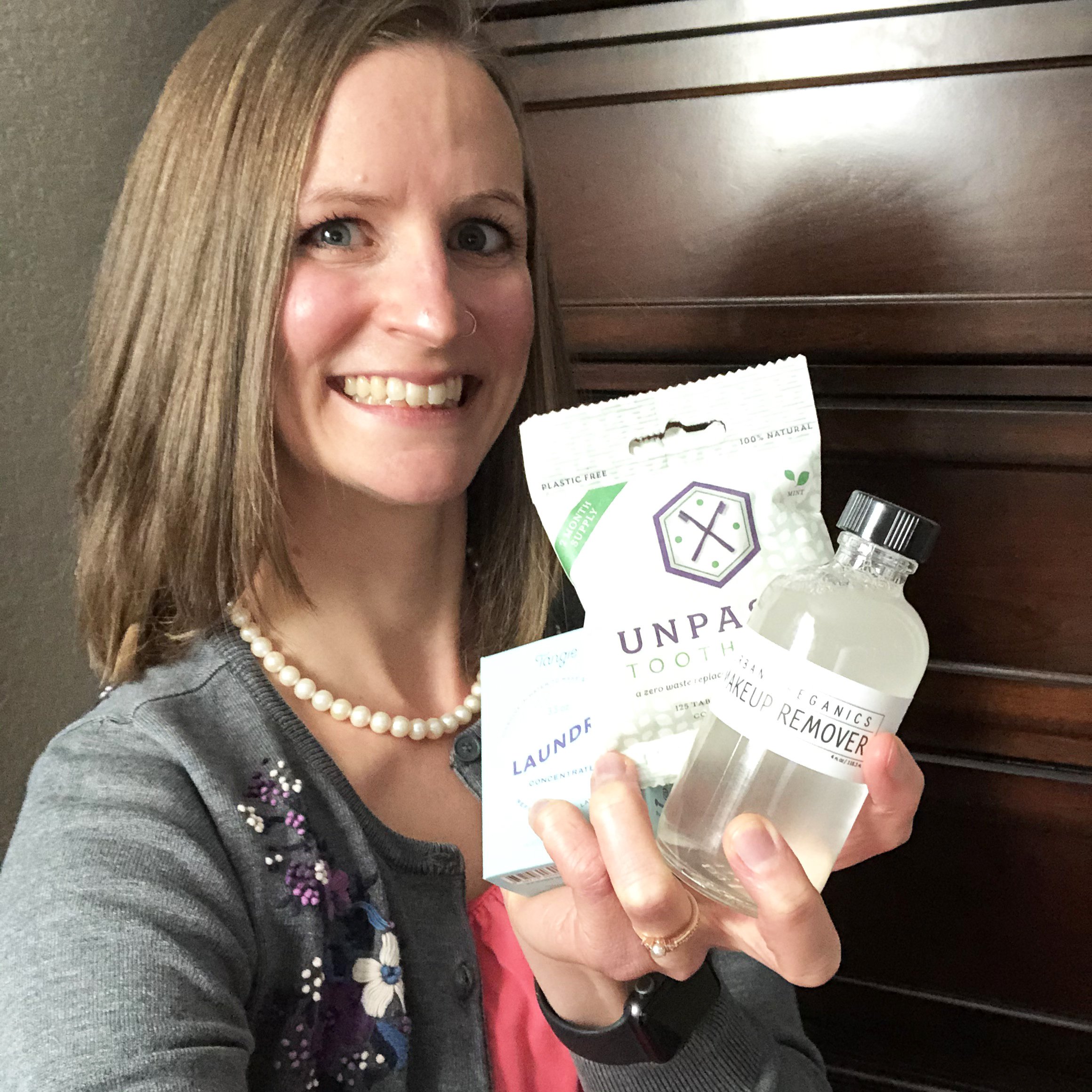
A few of my favorite plastic-free products from Tiny Yellow Bungalow!
Instead of plastic, here are some of my favorite options for plastic-free personal care, cleaning, and shopping products. Pick one of these to swap out this month to get started on your plastic-free journey!
Plan your Menus around Seasonal Produce
To eat seasonally means to choose foods which naturally become ripe during each period of the year. It can also mean choosing foods which have been stored from the last season.
In most parts of the world, the year is divided into seasons: spring, summer, fall, and winter – each with its unique temperatures and rainfall patterns. Those patterns determine the growing seasons of different crops.
Because of these natural planetary rhythms, choosing to eat seasonally is better for you, your budget, and the planet.
Grab this Seasonal Vegetable Guide so you know what’s available year-round!
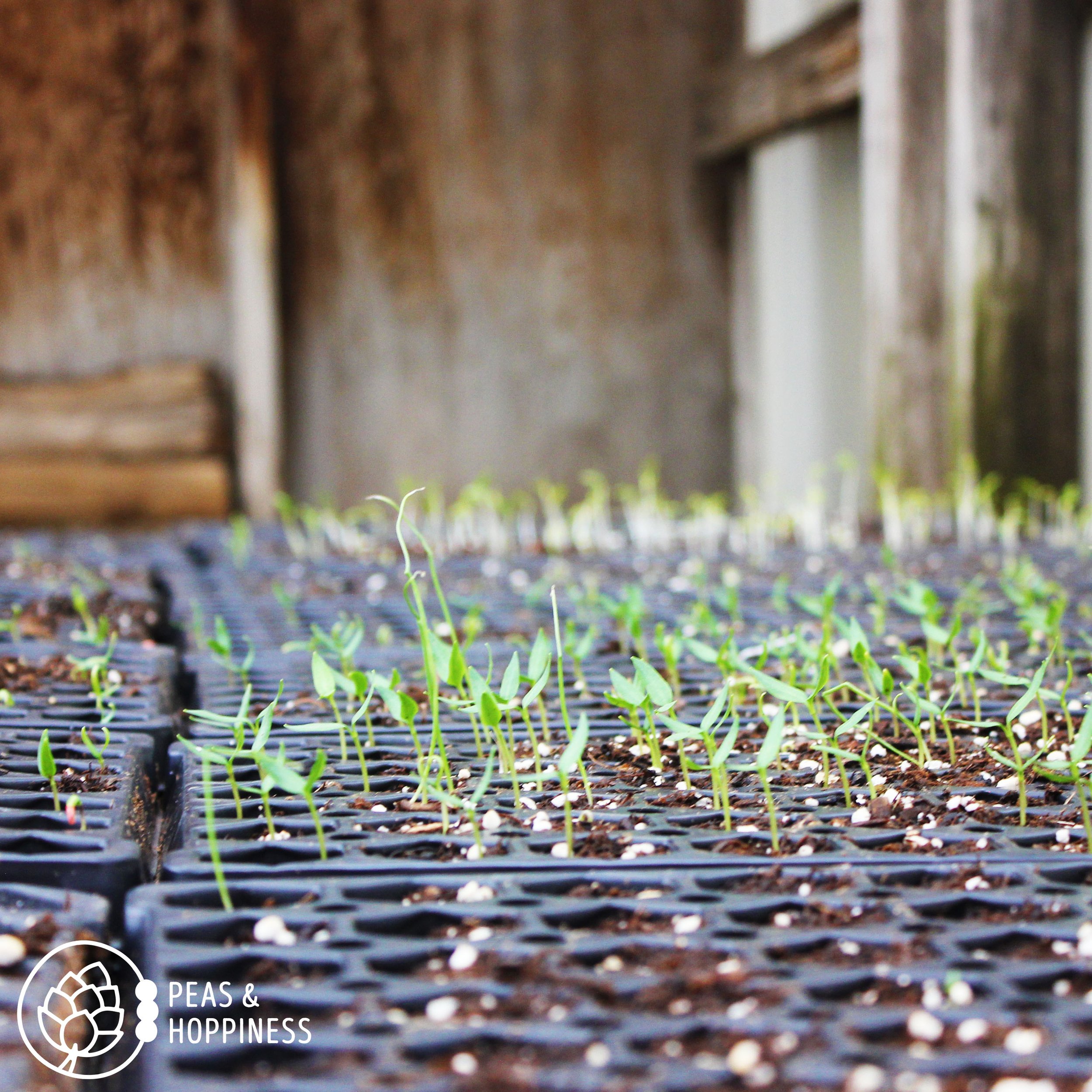
Sprouts growing in the Miller Farms greenhouse, soon to become veggies in our next CSA box!
Consider Adding Solar Panels to your Home or Joining a Community Solar Program
Switching to clean, renewable energy is essential to meet the climate change targets set by the IPCC (Intergovernmental Panel on Climate Change) in time to keep global warming to less than 1.5 degrees Celsius by 2030.
The great news is this is a change many of us can make ourselves – we don’t even need to rely on policy makers or fossil fuel companies!
The cost of going solar has decreased each year since 2009 while simultaneously becoming more efficient. If you own your home, there are options for buying versus leasing panels and some states and cities offer tax incentives for purchasing solar, in addition to the Federal tax benefits. Switching to solar could actually save you money!
If you don’t own your home, you might still be able to enjoy savings on your electricity bill through a Community Solar Program. Search for “community solar” and the name of the state you live in to see if there is a program near you.

Little changes can go a long way! Try this yummy recipe for Lentil Tater Tot Casserole for your next “Meatless Monday” option.
Spread the Word!
One of the most important ways to make change is to have conversations with people around you. Share with your friends and family the ways you’re decreasing plastic use or participate in “Meatless Mondays” with your family.
It’s more important for all of us to do a little bit rather than worry about any one person being perfect. Small steps can go a big way, and encouraging others in their journey will help!
Join our Peas & Hoppy Community and share your ideas and inspiration to celebrate Earth Month. Wherever you are on your journey, I’m so glad you’re here.
Happy Earth Month,
Dietitian Ann
Additional Reading & Resources for your Eco-Friendly Journey
-
7 Simple Vegan Meat Substitutes
-
Seasonal Vegetable Guide
-
Free Trial of our Flexitarian Meal Planning Service: The Peas and Hoppy Meal Guides
-
8 Ways to Make your Home more Eco-Friendly by Jessie Stokes of Tiny Yellow Bungalow
-
Eco-Friendly Living in a Tiny House by Sophie from R.A.D. Tiny Home
Join our Seasonal Meal Planning Service
Start your free trial of the Peas and Hoppy Meal Guide Membership and receive a weekly pre-planned “flexitarian” menu.
Each meal guide includes instructions to make your menu vegetarian or vegan, so you can transition to a plant-based lifestyle at your own pace!
